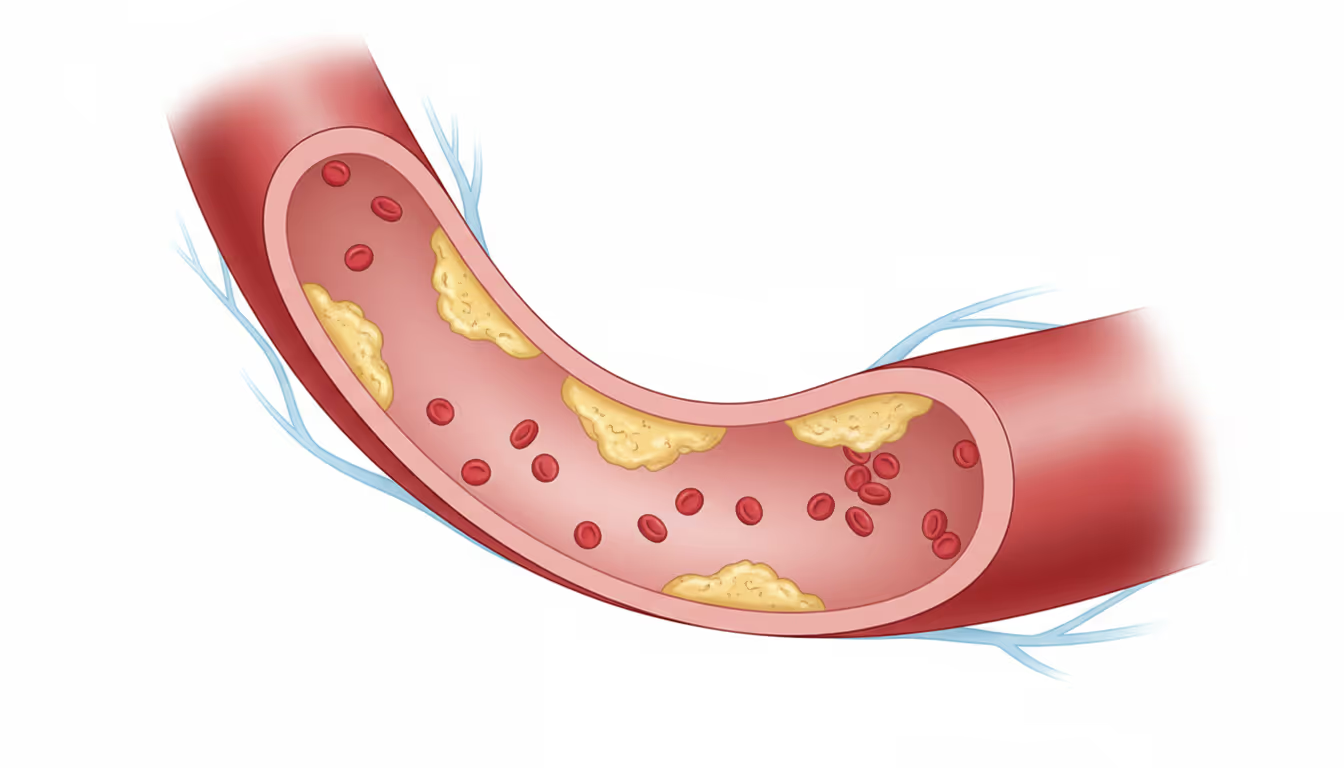
Plaque:1. A semi-hardened buildup of substances from fluids that surround an area. This includes examples like dental plaque. Minerals accumulate on teeth due to bacteria acting on food particles, forming dental plaque, which creates an ideal environment for dental issues to develop. To minimize this risk, plaque should be removed through daily brushing, flossing, and regular dental checkups. If not addressed, plaque hardens into tartar or calculus. Cholesterol is a significant element in plaques found inside blood vessels, contributing to the development of heart attacks and other complications. Maintaining normal cholesterol levels and sometimes using medication can help lower these risks.2. In dermatology, a plaque refers to a small patch of skin that differs in appearance from the surrounding area and is generally raised.




